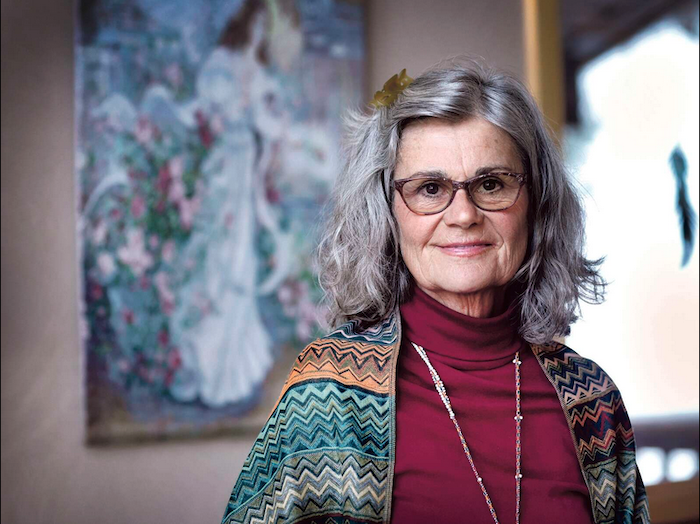— Society doesn’t often talk about dying, but an end-of-life doula in Durango says we should

Christine Pollock, an end-of-life doula, says the quality of one’s dying experience is largely dependent on his or her preparation going into it.
Years before she received any training to prepare for working with those nearing the end of life, Christine Pollock gathered a small community of supporters as a friend of hers prepared to die.
“As time progressed and she got closer and closer to death, she embodied more and more light,” Pollock said. “Even though she was in so much pain and suffering, she became like this beacon of light.”
It was July 2013. As Pollock’s friend took her final breath, a powerful breeze cut the still heat of the day and poured through the window.
“The veils are very thin between being on this side and being on that side,” Pollock said. “I think our hearts can hold a lot more than we allow them to, especially when it comes to compassion.”
Pollock is an end-of-life doula in Durango. She describes her work as that of a front-line caregiver who provides comfort care and views herself as a conduit – she helps facilitate the dying experience that those passing wish to have.
Just as doulas transition people into the world, end of life doulas transition people out of it.
The work of an end-of-life doula is not medical, at least in Pollock’s case. She does not administer medication or take the place of hospice or palliative care.
In his 1971 elegy for the aged, “Hello in There,” the legendary folk artist John Prine wrote of the solitary old folks to whom he delivered mail during his days as a letter carrier. It’s refrain concludes, “old people just grow lonesome, waiting for someone to say, ‘hello in there, hello.’”
It is this experience that end-of-life doulas hope to prevent.
“The whole thing is about changing a cultural paradigm around how we view death, taking it from a fear-based perspective, a scary experience, into a sacred and beautiful transition,” Pollock said.
As long as people have been living, they have been dying. The experience, in many cases, used to be as much an exercise in mourning as it was a celebration of life. As communities grew, it became easier for people to slip through the expanding gaps in the social web, Pollock says. And as the bonds of community have weakened, the fear of death has increased.
“Everybody rallied around a birth, everybody rallied around a death and honored their life, honored their gifts,” she said.
She views her work as that of a stopgap. It takes the place of a community – or facilitates the creation of one – to celebrate a life as it comes to an end. Doulas see death as a transition of a threshold; the quality of that transition, Pollock said, hinges on ones preparation.
She began this work in an official capacity after a six-month training at the Conscious Dying Institute in Boulder, which she attended in 2019. The extensive training asked participants to read in depth on the topic, come to terms with their own grief and practice creating plans for the final three months of someone’s life.
Pollock leads meditation and wellness retreats as a day job, as her practice as an end-of-life doula is not a full-time occupation. The line between client and companion appears blurred in the cases when she counsels those nearing death for no compensation.
In the last year, she said she had three paying clients, between eight and 10 whom she worked with free of charge, and an additional smattering of telephone consults.
The work of an end-of-life doula is different according to the needs of each client and the person doing the work. Pollock works from a toolbox filled with guided meditations, music, massage therapy, Reiki and an assortment of literature and mantras.
A lack of discussion around death as a society inhibits planning; Pollock’s primary mission is to encourage those approaching death to develop some sort of plan. She works with clients to create “vision maps” that could include anything from exercise in forgiveness to visiting the ocean.
“We fill the care gap,” she says.
The soft-spoken caregiver is mindful of individual religious or spiritual beliefs and seems adept at fitting her own work into the existing understanding of life and death that a client and family maintain. Whatever one’s conception of an afterlife may be, Pollock works to ease the transition into it.
Although working with an endless stream of dying clients could foist an undue weight on an end-of-life doula, she says the work enriches the meaning in her own life.
“It’s truly a calling,” she says. “It’s a life purpose and everything that I have done up until this point in my life has led me to this precipice of the final work that I will do with my life.”
Pollock hopes that eventually, her line of work will be rendered unnecessary by a change in the cultural conception of death.
“We’re headed back to honoring death as a vibrant part of life, to take the fear out of it,” she said.
Complete Article ↪HERE↩!
